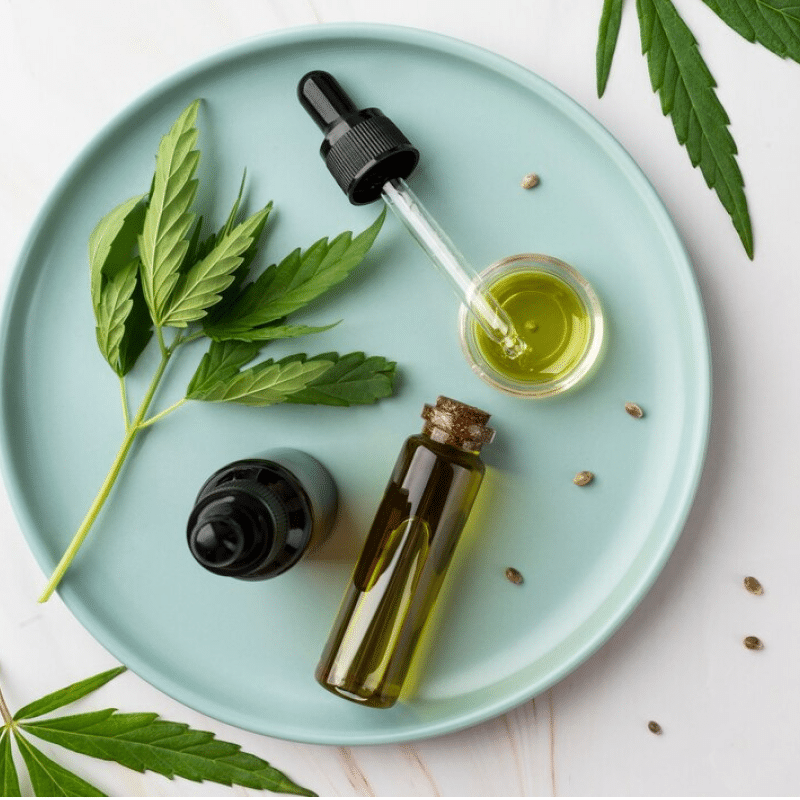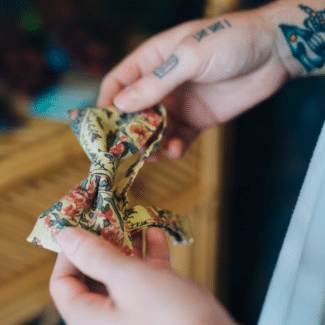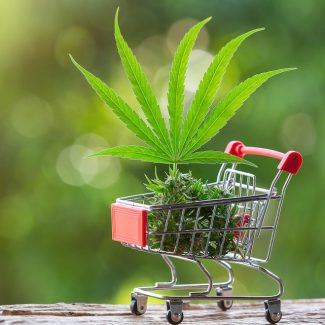Starting a CBD Business 2024: Understanding the Costs and Necessity of CBD Insurance
Starting a CBD business in 2024 requires a thorough understanding of various costs, legal requirements, and the importance of insurance. As the CBD market continues to grow, entrepreneurs must navigate startup expenses, compliance issues, and effective branding strategies to succeed. This guide delves into essential factors, including legal compliance, product development, marketing, and operational expenses, to help you build a solid foundation for your CBD venture.

CBD is a flourishing industry. The only cannabinoid to enjoy federally legal status has become increasingly popular with consumers over the past few years, leading to a surge in CBD brands and products. Some are questionable (like infused pillowcases) but most products fill a gap in consumer lives and health and wellness goals.
This sector of the cannabis industry is also drawing in large numbers of inspired entrepreneurs who want to capitalize on the plant’s possibility and profitability. But the road to CBD profitability is not a straight line. It takes planning, budgeting, and a firm understanding of the pitfalls of start-up businesses.
And indeed, there are many costs associated with a CBD startup. There are typical startup costs and there are additional costs that come with being in the cannabis industry. With proper research, planning, and budgeting, however, dealing with the startup costs of a CBD business is no barrier to success. Let’s explore these costs.
Product Development or Manufacturing
If you’re not growing or processing hemp, the first section may or may not apply to you. But if you’re selling CBD products, then you’ll need to spend some money on research and development.
If you want to bring a CBD product to market, it needs to be made in a cost-effective and sustainable way. Additionally, there are a lot of factors that go into creating a manufacturing process from the ground up.
“R&D?” You may wonder. “I don’t need that! I make my own topical balm/ tincture/ bath bombs/ edibles and all of my friends love it — who needs market research!” If that’s the case, congratulations on finding a great formula! But that’s still only part of the equation.
Consider the following questions:
- Have you secured a supplier of CBD?
- Are you getting it straight from the farm, or are you sending it off to be extracted and processed first? Do you know how the CBD is being extracted?
- Are you comfortable with the extraction method?
- How much will it cost to scale the production of your CBD product?
- If you’re making it by hand, you can’t do that forever.
- What kind of equipment do you need to invest in?
- Can you afford to buy this equipment or lease it?
Furthermore, think about these inquiries:
- Do you have space for it at your house, or will you need to invest in a dedicated manufacturing space?
- Will you lease this space or purchase it outright?
- Will you be able to run the manufacturing space yourself, or will you need help?
- Can you scale your product production by yourself with equipment, or will you need employees? What kind of product safety certifications do you need to produce your CBD product?
- Will you test the product yourself or send it to a lab to ensure product safety?
- What is the cost of the rough materials?
- What are you selling your product for, and what will your profit margins be?
- Can you afford these costs out of pocket, or will you need a loan or financing?
If you’re feeling overwhelmed by all of that — take a deep breath. It’s a lot to consider and you don’t need to tackle it all at once. But you do need to tackle it at some point before launching your product, and these are the types of questions that should be answered in your business plan, especially if you’re seeking outside funding. These considerations play a significant role in the financial planning of your CBD business.
Branding and Marketing Expenses
Once you’ve tackled the beast of manufacturing and established your backend processes, you have to turn outwards. Branding and marketing are two large pieces of the puzzle for any brand, but especially for a B2C brand. You need a brand that speaks to the soul of your business and catches a customer’s eye. You want it to be enticing and representative of your business, without being overwhelming, but also memorable. It needs to stand out on a crowded shelf full of CBD products — but in a good way.
Unless you’re a part-time designer and packaging engineer, you’ll likely want outside help for this part. Engaging a designer to help create your logo, brand color, and packaging design is the easiest way to move this piece of the puzzle forward, but it can come at a cost. You can work with the designer to choose how in-depth you get, but a logo, brand color scheme, and basic product packaging is an important place to start.
This is also the stage where you need to enter the digital world with a website and make important choices. Will your customers be able to shop online for your products? Will you host your own ecommerce site, or engage a third party to do the heavy lifting for you?
If you don’t want to host your own shop, you can build out a basic website with a home page, about page, FAQs, and contact page, and use the shop button to link to your ecommerce platform. This option is typically cheaper but comes with limited functionality since you don’t own the ecommerce platform. Conversely, hosting your own shop gives you greater control over all aspects, but it can also be more expensive and time-consuming, and you may need to hire a web developer to help you manage it.
You’ll also want to consider your marketing and advertising budget here. Will you try to gain a following organically through social media, or run ads to jump-start your business? How will you build an online presence, and which social media platforms will you try to manage? (Pro tip: don’t say “all of them.” Pick and choose where to spend your energy.) How will you grow your email list? What kind of promotions and discounts are you comfortable offering? Will you use print advertising, or stick with digital?
If you don’t have a marketing background, it may be helpful to engage with a marketing consultant to build out this part of your business plan. A one-time cost to get a comprehensive marketing plan is worth it for many business owners, but it is (again) an additional cost.
Distribution and Sales Channels
We’re still not done! Once you have answered the questions above, you must consider how your products will get to your customers. Do you want to get into retail stores, or offer your products exclusively online? Are you willing to pay shelving fees and offer freebies to store owners to entice them? How will you handle the restock process for retail locations?
Will you make each order as they come in or can you create batches of products to have on hand and ship out? Making the products for each order keeps you from holding onto inventory but it increases your daily production workload, and it could be unsustainable if you start to get too many orders each day (a good problem to have!)
Conversely, you can make products in batches to ship out as needed, but then you have to manage your inventory. If you’re going with this route, consider the storage needs of your product. Where will it live? Does it need to be kept within a specific temperature range? Can you invest in shelves for your spare bedroom, or does it need a dedicated fridge and freezer to keep? Can you stand your house being overrun by your products, or are you comfortable investing in a warehouse storage solution?
Consider too the cost of establishing your distribution network. Which shipping provider will you use? Do you need a dedicated agreement with them, or will you shop around for the cheapest option? You’ll also need to monitor your shipping costs and conduct regular audits to ensure you know where your money is going.
Insurance and Risk Management
Now we come to the question of insurance — what policies does a fledgling CBD business need? Every business is unique, but there are a few policies that we recommend every CBD business have under their cannabis insurance umbrella.
Cannabis insurance recommendations for nearly every new CBD business
General Liability Insurance
General liability insurance, or “all-risk” coverage, protects your business from primary risks. This includes any claim arising from a harmful incident that took place within your CBD business premises. General liability safeguards your business from third-party claims, protects your customers from any personal (property or bodily) damages, and secures your assets against legal obligations.
Property Insurance
Property insurance reimburses for direct personal losses, covers renovation and repairs, and offers compensation for the losses business faced because of the incident (similar to Rented Premises insurance).
Product Liability Insurance
Cannabis dispensaries sell tangible products that can constantly be subjected to product liability claims. This puts dispensaries in a constant risky state, making CBD product liability insurance a must-have for every CBD business owner. Product liability insurance covers all settlement costs and defense fees even when the claims are ungrounded. It enhances your credibility and shows that you care about your customers.
Cyber Liability Insurance
Cyber insurance offers forensic investigations, helps with data recovery, covers financial losses, and helps with legal settlements.
Crime Insurance
Crime insurance protects your CBD business against all financial losses in cases of theft, employee dishonesty, forgery, and other fraudulent activities. It provides coverage for stolen cash, inventory, and damages resulting from criminal acts while ensuring your business can recover from financial setbacks.
Engaging a cannabis insurance broker is a good time to evaluate your risk management plan. You have policies in place, but is that enough to cover any exposures in your business? A new business owner can be overwhelmed by the number of details to manage, so working with a risk management professional can bring a fresh set of eyes to your business, and help you identify any potential risks or exposures, as well as come up with a plan to deal with them.
Operational Expenses
All of the aforementioned costs are startup costs — the cost of setting up a business. But once that’s dealt with, there’s still the operational expenses to continue business. You’ll need to budget for these in advance, so they don’t catch you off guard.
Operational expenses are the day-to-day operating costs of running your business. These can vary based on how big your business is and can include office supplies, building utilities, and employee costs, such as salaries, training, and benefits. Operational costs also include the cost of professionals like accountants, financial services, and legal fees. Expenses for technology and software subscriptions, like your point of sale system, also fall under this category.
Operational expenses also involve planning for the future. Contingency funds, cash flow management, and savings all need to be accounted for. It can also include capital raising expenses like investor relations.
There are numerous factors that a CBD startup needs to manage. It can feel overwhelming at first, but an important thing to remember is that you’re not building your business alone. The startup phase is the best time to create a supportive ecosystem of businesses around you that help you run and manage your business effectively.
Protecting your cannabis company can seem confusing; however, we’re a full-service insurance brokerage working with carriers worldwide to offer you the best coverage possible. We’re here to help! Please reach out to us today by emailing [email protected] or calling 646-854-1093 for a customized letter of commitment or learning more about your cannabis insurance options.


